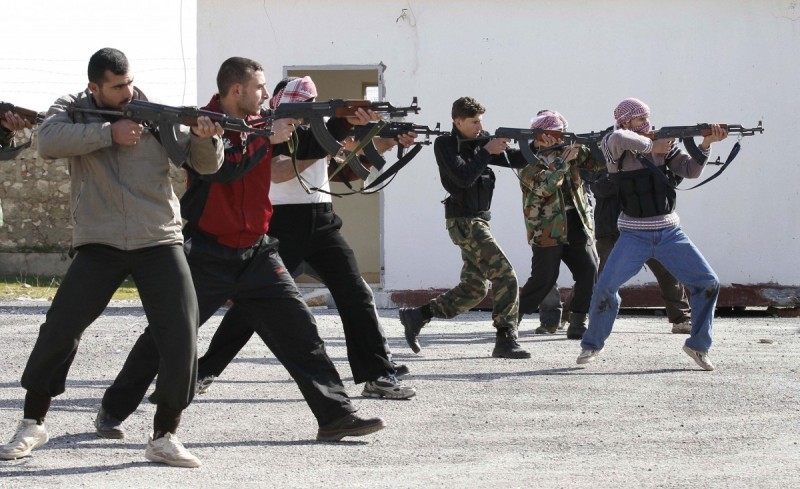
Washington Post– Key lawmakers have moved to slash funding of a secret CIA operation to train and arm rebels in Syria, a move that U.S. officials said reflects rising skepticism of the effectiveness of the agency program and the Obama administration’s strategy in the Middle East.
The House Intelligence Committee recently voted unanimously to cut as much as 20 percent of the classified funds flowing into a CIA program that U.S. officials said has become one the agency’s largest covert operations, with a budget approaching $1 billion a year.
“There is a great deal of concern on a very bipartisan basis with our strategy in Syria,” said Rep. Adam B. Schiff (Calif.), the ranking Democrat on the intelligence panel. He declined to comment on specific provisions of the committee’s bill but cited growing pessimism that the United States will be in a position “to help shape the aftermath” of Syria’s civil war.
The cuts to the CIA program are included in a preliminary intelligence spending bill that is expected to be voted on in the House next week. The measure has provoked concern among CIA and White House officials, who warned that pulling money out of the CIA effort could weaken U.S.-backed insurgents just as they have begun to emerge as effective fighters. The White House declined to comment.
Recent CIA assessments have warned that the war is approaching a critical stage in which Syrian President Bashar al-Assad is losing territory and strength, and might soon be forced to relinquish all but a narrow corridor of the country to rebel groups — some of them dominated by Islamist militants.
“Regime losses across the front lines are edging the conflict closer to [Assad’s] doorstep,” a U.S. intelligence official said, speaking on the condition of anonymity. The Syrian president “is not necessarily on the verge of defeat,” the official said, noting that Russia and Iran continue to support him and could help him stave off collapse. But because of regime losses in Idlib and elsewhere, the official said, “many people are starting to openly talk about an endgame for Assad and Syria.”
The projections have prompted a flurry of discussions at the White House, CIA, Pentagon and State Department regarding post-Assad scenarios, officials said, and whether U.S.-backed moderate forces will be in a position to prevent the country from being overrun by extremist groups, including the Islamic State, which has beheaded Western hostages and declared a caliphate encompassing large parts of Syria and Iraq.
This week, President Obama expanded the U.S. military’s role against the Islamic State, unveiling plans to deploy U.S. advisers to new bases in Iraq, while announcing no change to the limited American-led bombing campaign that began in Iraq and Syria last year. A separate Defense Department program authorized to train moderate fighters to combat the Islamic State has not yet begun.

